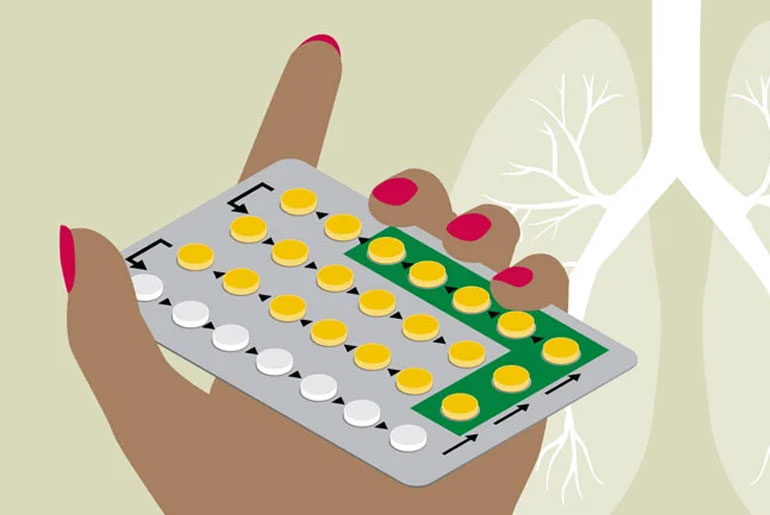

Women who use non-steroidal anti-inflammatory painkillers alongside hormonal contraception appear to be at a small increased risk of blood clots known as venous thromboembolism (VTE), finds a large Danish study published by The BMJ today.
The risk was greater in women using combined oral contraceptives containing third or fourth generation progestins, but smaller in women using progestin-only tablets, implants and coils, alongside the non-steroidal anti-inflammatory drugs (NSAIDs) ibuprofen, diclofenac, and naproxen.
The researchers stress that the absolute risk of developing a serious blood clot is low, even in women using high risk hormonal contraception. But given the widespread use of both hormonal contraception and NSAIDs, they say women should be advised of this potential drug interaction accordingly.
NSAIDs have previously been linked to blood clots, but little is known about whether using NSAIDs influences the risk of venous thromboembolism in otherwise healthy women using hormonal contraception.
To address this, researchers used national medical records to track first time diagnoses of venous thromboembolism among 2 million women aged 15 to 49 years living in Denmark between 1996 and 2017 with no history of blood clots, cancer, hysterectomy or fertility treatment.
Hormonal contraception was divided into high, medium and low risk, according to their association with VTE based on previous studies.
High risk hormonal contraception included combined oestrogen and progestin patches, vaginal rings, and pills containing either 50 mcg oestrogen or third or fourth generation progestins. Medium risk contraception included all other combined oral contraceptives and the medroxyprogesterone injection, while progestin-only tablets, implants, and hormone intrauterine devices (coils) were classed as low or no risk.
A range of potentially influential factors such as age, education level, pregnancy history, prior surgery, high blood pressure and diabetes, were also taken into account.
In the study, NSAIDs were used by 529,704 women while using hormonal contraception. Ibuprofen was the most frequently used NSAID (60%), followed by diclofenac (20%) and naproxen (6%).
Over an average 10-year monitoring period, 8,710 venous thromboembolic events occurred (2,715 pulmonary embolisms and 5,995 deep venous thromboses), and 228 (2.6%) women died within 30 days of their diagnosis.
In absolute terms, NSAID use was associated with four extra venous thromboembolic events per week per 100,000 women not using hormonal contraception, 11 extra events in women using medium risk hormonal contraception, and 23 extra events in women using high risk hormonal contraception.
Among individual NSAIDs, the association was strongest for diclofenac compared with ibuprofen and naproxen.
This is an observational study, so can’t establish cause, and the researchers highlight several limitations, such as missing information about smoking and obesity, which they say may have affected their results.
Nevertheless, this was a large study based on high quality registry data and the researchers were able to adjust for a wide range of potentially influential factors. What’s more, the associations persisted after further analysis, suggesting that they are robust.
As such, the researchers conclude: “Using high quality, linkable, national registries, this nationwide study adds new knowledge on the risk of a potentially fatal event during concomitant use of two drug classes often prescribed to otherwise healthy women.”
They add: “Women needing both hormonal contraception and regular use of NSAIDs should be advised accordingly.”
These data raise important concerns about using NSAIDs, particularly diclofenac, and high risk hormonal contraception concomitantly, writes Morten Schmidt at Aarhus University Hospital, in a linked editorial.
He suggests that healthcare authorities and regulators should include these findings in their safety assessment of available over-the-counter diclofenac, and women using hormonal contraception and their clinicians should consider alternatives to NSAIDs for analgesia.
“If treatment with NSAIDs is needed, agents other than diclofenac seem preferable, along with lower risk hormonal contraceptives such as progestin only tablets, implants, or intrauterine devices,” he concludes.

